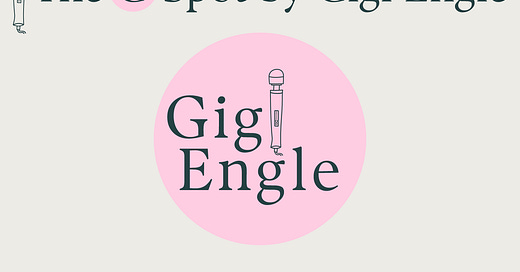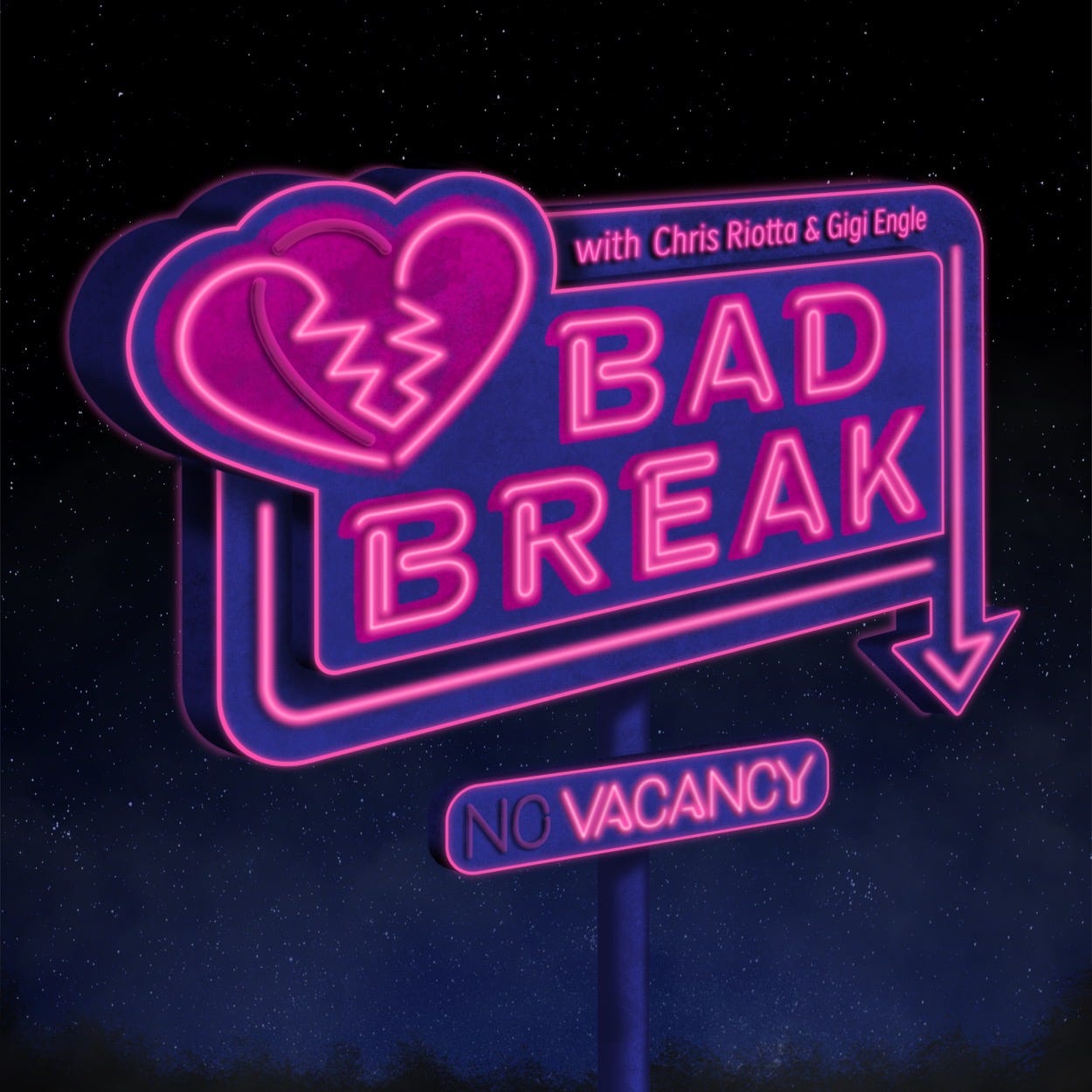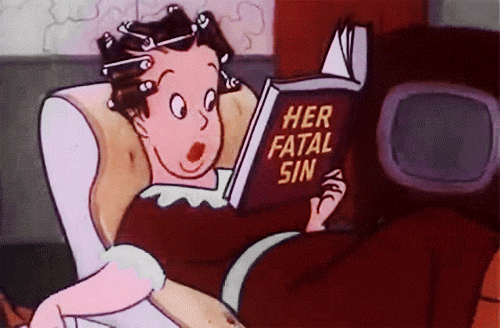[This newsletter will always be free to read, but it’s also how I supplement bills and such - which allows me the flexibility to bring you the best possible sex education every week. So, if you like what you read, please consider a paid subscription.]
Hey babe,
Within the sex positivity movement, you’ll see guides on everything from "how to be your empowered sexual self," to "the benefits of regular masturbation," to "different sex toys that will take you to another planet."
But there is something decidedly missing from the conversation: If you’re not having sex, what happens to your brain and body? Like, what actually will happen to you if you abstain?
I’m not talking about the pseudo-scientific claims of the #NoFap community that extoll the ~life-changing~ benefits of forgoing self-touch. This is nonsense and there is no scientific evidence to support any of it. What we’re looking to unpick here are the proven effects of skipping out on sexual stimulation.
The old, "if you don’t use it, you lose it" phrase comes to mind. Is there any merit to this idea? After all, our genitals were literally designed for pleasure.
Sex has been linked to better mental and physical wellness. In fact, a 2016 study in the Journal of Health and Social Behavior found that women who have satisfying sex later on in life might have a lower risk of high blood pressure. Orgasms have consistently been linked to anxiety reduction and better mental health. It just makes us feel more balanced and connected to ourselves.
This idea of body and mind impact when it comes to a lack of sexual activity is worth exploring. The more knowledge we have, the better equipped we are to make sexual wellness choices that are good for us and our particular situation.
The body without sexual activity
Let’s start with what happens to the body when we don’t have sex. Will we fall apart and die? No, obviously not. But there are some serious positives to getting off – and not getting off could mean missing out on them.
Sex can be a form of exercise, which can be greatly beneficial for all folx. And this balances our hormones. It’s important to be clear that you can get the same benefits from regular exercise, too … though the Peloton doesn’t offer orgasms, unfortunately.
For penis owners
According to a journal published by the American Journal of Medicine, AMAB (assigned male at birth) people who don't engage in frequent sexual activity are twice as likely to experience erectile disorder than those that engage in sexual activity 1-2 times per week.
Semen retention may also increase your risk of prostate cancer, as studies have shown that regular release reduces your risk. What this means is there is a link between ejaculation and prostate health.
For vagina owners
People with vaginas may experience vaginal atrophy as a result of a lack of sexual activity – especially penetration.
A lack of physical sexual activity can also lead to decreased toning in the pelvic floor muscles. These muscles are responsible for supporting your lower internal organs – and play a big role in managing incontinence.
Of course, there are ways you can avoid both of these physiological issues without sex. Doing regular pelvic floor exercises can increase pelvic floor function. And if you’re worried about vaginal atrophy, you can always use dilators. Check out this NHS-approved medical guide for more information.
All of this is to say: You don’t NEED to have sex to have a healthy body, but it can help.
The mind without sexual activity
Intimate touch has been shown to decrease cortisol, the body’s stress hormone. This isn’t necessarily sexual – hugs, kisses, and handholding can also have this effect. When we forgo intimate touch, we can experience "touch starvation" wherein we become anxious, depressed, and generally agitated. The vast majority of humans require social interaction and touch to thrive.
And then, of course, there are the benefits of orgasm. Orgasms produce oxytocin, which plays a part in our overall well being. Oxytocin is a natural pain-reliever – and studies show that this heavyweight hormone helps to decrease anxiety.
Even non-orgasmic pleasure can boost our health. During foreplay and sexual excitement, your brain naturally releases the chemical serotonin, which helps to increase sexual satisfaction and regulate mood.
Self-love offers a cocktail of brain-regulating joys.
Without orgasms, anxiety can increase. Orgasms are a way to relieve pent-up energy and anxiety. Sure, there are other ways to relieve anxiety outside of orgasm, but being sexually pent-up is a real thing – and it doesn’t make the vast majority of people feel super great. Keep in mind that you don’t need a partner to enjoy orgasms.
Masturbation is self-care. (Check out this guide I wrote to creating a masturbation routine to learn more).
Of course, some people don’t want sex (and that’s A-OK)
With all that being said, we have to be very sensitive to our asexual/ace pals – specifically those who don’t want or like sexual activity. If you don’t desire or want sexual activity, what happens?
There’s nothing wrong with being asexual and/or not wanting sex – just so we’re very clear. The mind and body benefits of having sex/orgasms is very based on the context of the situation and the desires of the person/people at hand.
Listen, we get that the idea of vaginal atrophy or prostate cancer can be scary for people who have little to no sexual interest. Asexual people may not want to engage in sex – partnered, solo, or otherwise – and that is perfectly fine. If you don’t want to be having sex or having sexual activity, you don’t have to. Doing something you find unappealing, repulsive, or distressing is not going to improve your mental health. So, if this is you: Don’t worry about it. You do you.
What’s more, people with certain sexual health disorders may also be unable to have sex or find sex painful. For instance, people with vaginismus, vulvodynia, or endometriosis may find penetrative sex (or some or all kinds sex) painful and/or uncomfortable. While many sexual dysfunctions are treatable with the help of a qualified sex therapist, pelvic floor physical therapist, and other relevant healthcare providers, sex can still prove to be challenging. This is totally valid and we hear you. You should only ever engage in sexual activity that feels good and pleasurable for you.
What’s more, you might not be asexual, but simply decide you don’t want and/or enjoy sexual activity, and that is OK too. You are the captain of your own sexual wellness journey.
At the end of the day, it’s about what YOU want. It’s about doing what feels good, healthy, and right for you. There’s no judgment here. Everyone should do what makes them happy and brings them pleasure.
All of this is to say: Get on with your bad self and do what makes you happy.
This week’s mantras:
Sex is not shameful.
I deserve to have pleasure in a way that feels right for me and my journey.
I will love myself.
I love you. Have a great week!
XOXO Auntie Gigi
Part of this newsletter originally appeared on Mashable.
SUBSCRIBE TO BAD BREAK!
The podcast about WILD breakups. The FULL first season is ready to stream NOW!
And don’t forget to rate and review! It really helps me be able to keep bringing you these awesome episodes! <33333
~Good ReadsSsSssSsSs~
Cock rings are truly some of my favorite sex toys ever. And not just for penis-owning folx. Certain cock rings come with a raised base (often one that vibrates), which can help with getting that very much needed external clitoral stimulation that the vast majority of clit-owners need in order to climax. Use lots of lube and go slow! As for general safety tips, remember: Cock rings are restricting blood flow to the wearer’s penis, which means they can cause numbness or damage if they’re worn for too long. Only use a cock ring on penises for 20 minutes at a time. If you want to learn more, I gave all my best advice to Cosmo. Read more. - COSMO
A writer at Metro asked me why someone might want to keep their eyes clsoed during sex … and what to do if it makes you uncomfortable. I’ll be doing a deep dive into this topic for a newsletter that is coming up, but for now — you can read some of my tips over there! Read more. - METRO
I was also asked by Well+Good how to know the difference between falling out of love or simply if NRE has faded. I plan to do a deep dive on this one, too! But, if you’re feeling a bit impatient, you can read some of my comments over on their site. Read more. - WELL+GOOD
Look friends, it’s long past time we stopped sleeping on foreplay. It can take a “good” sexual experience and turn it into a full body, mind-blowing, damn-near religious one. Yes, it really is that important. We can’t just be “sticking it in” before the oven is warm, folks! Read more. - COSMO
Anal sex is quite the ~hot thing~ to try these days—and for damn good reason. For starters, the anus is a wonderland of nerve-endings and delights. Women and vulva havers can actually reach deep pleasure zones through anal—including the nerves of the clitoris and the A-spot (the anterior fornix). The A-spot is located deep inside the vagina, and because the walls between the vagina and rectum are so thin, you can access this sweet spot (and all the sensations that come with it) through anal. The more ya know! Read more. - COSMO
That’s it for me this week, pals. I love you. Remember, you deserve all the pleasure and joy YOU want and that means doing what feels best for you. You’ve got this. You’re the best expert in you.






